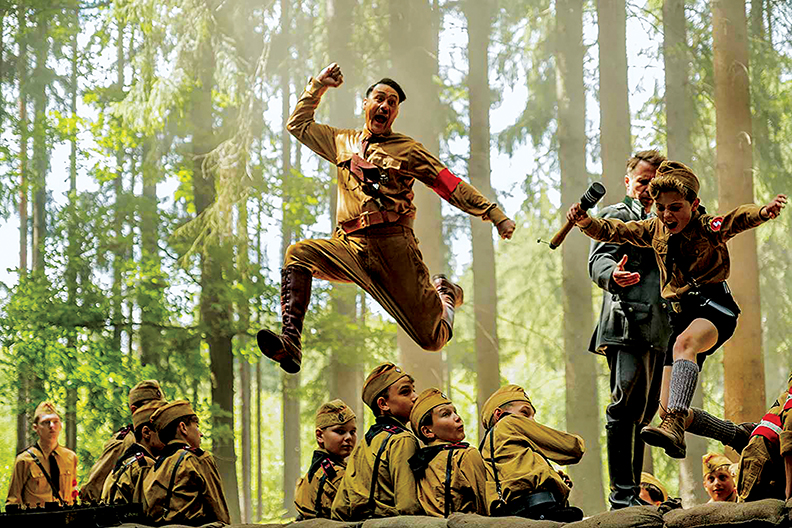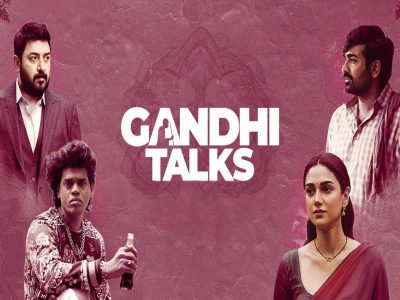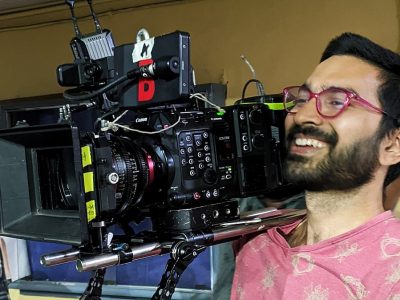Jojo Rabbit teaches us about the price collectively paid for fascism in the past. The movie is a visceral reminder of the past intruding on our present as we encounter violent right-wing racism and communal violence around us
DIRECTED BY Taika Waititi and based on the book Caging Skies by Christine Leunens, Jojo Rabbit is set in the war years of 1940s Vienna. It tells the beautiful and heart-warming story of young Johannes Betzler (an absolutely brilliant Roman Griffin Davis) who, at the age of 10, is a committed member of Hitler Youth — a Nazi training and indoctrination camp.
In fact, so committed is Betzler that Hitler (played by Taika Waititi) is his best and most powerful imaginary friend.
Hitler, on the other hand, is represented as a comic — a preening and insecure rabble-rouser who uses hate and prejudice to indoctrinate innocent minds and hearts. What happens to that prejudice when faced with the truth is the moral dilemma of this film.
One day, Johannes, aka Jojo Rabbit, accidentally discovers, to his horror, that his mother is sheltering a young Jewish girl, Elsa Korr (Thomasin McKenzie). This is when the film comes alive with the interaction of two young children thrown into an adult world of death and destruction. The power of truth to move and transform hate into love is the lesson Jojo learns at the end of the film.
Although the film has a lightness of touch and comic treatment, the subject of fascism and the power of Nazi propaganda has, unfortunately, become all too real and horrific in the world today.
There has been criticism of the film on this count. “By cutifying Nazis, and more egregiously, by turning Adolf Hitler into a loveable oaf, the film dilutes the lasting effects of their actions, and normalises similar ideas being contemplated across the world, as we speak,” wrote Rohan Naahar in Hindustan Times.
However, as Zack Beauchamp said in Vox, “The tenets and aesthetics of organised hatred may be deeply ridiculous, but their power to cause immense suffering cannot be underestimated. And that, I think, made the viewing experience worthwhile.”
While an earlier film on a similar theme, Life is Beautiful, made in 1997, received critical and commercial success because of the novelty of its subject and treatment, it was still a romantic look back at a painful past.
Jojo Rabbit, on the other hand, is a visceral reminder of the past intruding on our present as we encounter brutal and violent right-wing racism and communal violence around us.
This film might win an Oscar and be a commercial success, but it would be unfortunate if we fail to take away the historical lesson embedded in its lightness of touch.
Waititi said in Vanity Fair: “It’s shocking and kind of sad to think that a film like this would have even more relevance than ever, but it’s also a reminder of just how important these stories are. They’re more than films, they’re dialogues around the way we treat each other and raise our children. They’re a way of educating ourselves, and more importantly the younger generations, about the dangerous habits of humans and the importance of fighting against intolerance and hate. I specifically chose contemporary dialogue and popular music to convey these messages, so the film could further resonate with today’s audience.”
January 27, 2020, was the 75th anniversary of the liberation of the concentration camp at Auschwitz. There have been many memorials and events to mark the day, and it’s not only the historians but us, ordinary people, who must hear the testimonies of the victims and understand the narrative of hate that fascism peddles, to divide and destroy. Jojo Rabbit serves as a timely reminder for all of us.
We have been seeing strong political indoctrination and open calls for division and death made by leaders and influencers all over the world, including in India. There are social and cultural organisations that have modelled themselves on fascist ones. Here, indoctrination is supplemented with physical education lessons — boys learn how to wield sticks, along with martial arts, while girls learn sewing and cooking and are taught to become good housewives and mothers!
In the film, Johannes Betzler becomes Jojo Rabbit because he is unable to murder a rabbit at the indoctrination camp. It is a marker of his inefficiency for the Nazi camp leadership. However Jojo’s humanity is what his mother, Rosie (played by Scarlett Johansson), identifies as the basis for his eventual redemption and that is what happens eventually.
In India, we are at a crossroads today and we must look at the world around us from a historical perspective. A nation where the police watch a young man brandish a gun and shoot at unarmed protesters needs redemption. We have to decide as citizens if we want that redemption after we have displayed our worst and most destructive tendencies, or if we want it at the start of something that can only end in horror, as it did in the past.
As a nation we have already witnessed Partition and its painful dehumanisation. Therefore we must reclaim the humanity that has always been a hallmark of our civilisational ethos, with as little hate and terror as possible.
The more we watch films like Jojo Rabbit, the more we will hopefully understand the price we have collectively paid for fascism in the past. Let us not repeat the tragedy of history.
Say No to Hate and Discrimination.
Say No to Indoctrination and Violence.
Say No to Prejudice and Chauvinism.
Say No to Fascism.
www.newslaundry.com ■





